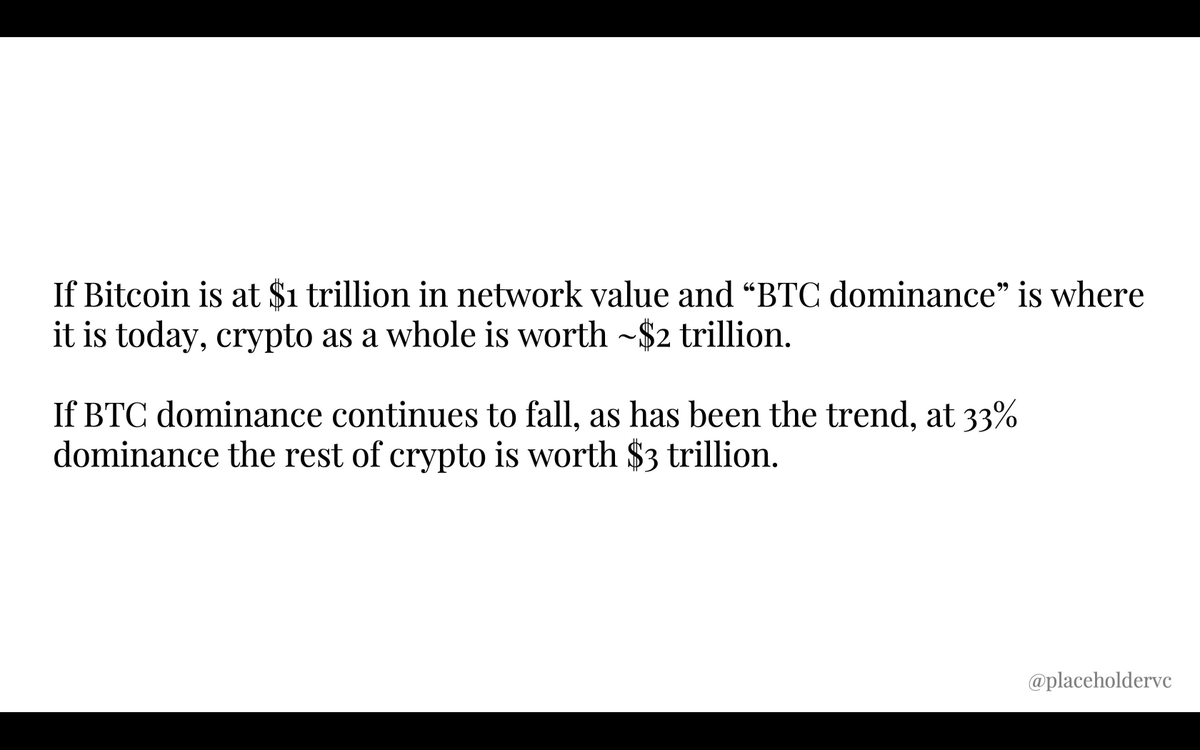
#Cryptonetworks = Deliberate process, emergent outcome.
#Cryptohierarchies = Deliberate outcome, deliberate process.
(h/t @fifthworldzach)
#Cryptohierarchies = Deliberate outcome, deliberate process.
(h/t @fifthworldzach)
Many #cryptohierarchies are parading as #cryptonetworks, but the feel, intent, and distribution of such systems are far from that of a network.
#Cryptonetworks are run by crypto-natives, people committed to decentralization of data, wealth & power for the good of all.
#Cryptohierarchies are often run by Web 2.0 or TradFi transplants. While some can make a full transformation, many remain blind to their cultural habits.
#Cryptohierarchies are often run by Web 2.0 or TradFi transplants. While some can make a full transformation, many remain blind to their cultural habits.
"If they both achieve 'success,' why does it matter?"
It matters because 'success' is subjective.
It matters because 'success' is subjective.
For most of human history, we've been subjected to hierarchies for coordination.
In hierarchies, power concentrates & then corrupts, to the detriment of the majority. Always happens.
In hierarchies, power concentrates & then corrupts, to the detriment of the majority. Always happens.
Blockchains allow us to coordinate without concentrated hierarchies, though the incentives and rules behind such coordination take time to get right.
*Time-consistency* is key: consistency of ethos, pathos, & logos allows a network to attract its tribe, and all work towards the most desired emergent outcomes.
Well designed governance, which doesn't have to be a hierarchy, puts structure around this *deliberate process*
Well designed governance, which doesn't have to be a hierarchy, puts structure around this *deliberate process*
Making space for emergent outcomes, as networks do, allows for more complex problems to be solved.
The world is facing a slew of complex problems, and our hierarchies are not cutting it.
The world is facing a slew of complex problems, and our hierarchies are not cutting it.
Internally building concentrated hierarchies is tempting as a more paved path that has textbook models, and it's still possible to externally hoodwink the majority into thinking you're building a network (for a while).
But, a hierarchy drunk on wealth & power never lets go.
And so the truth comes out eventually -- the internet accelerates the revealing of truth, one reason why society is waking up to rampant BS in our institutions.
And so the truth comes out eventually -- the internet accelerates the revealing of truth, one reason why society is waking up to rampant BS in our institutions.
And so we'll learn... but it would be a shame to endorse the same social mistakes when we have an enabling new technology that can help protect us... from ourselves.
• • •
Missing some Tweet in this thread? You can try to
force a refresh





